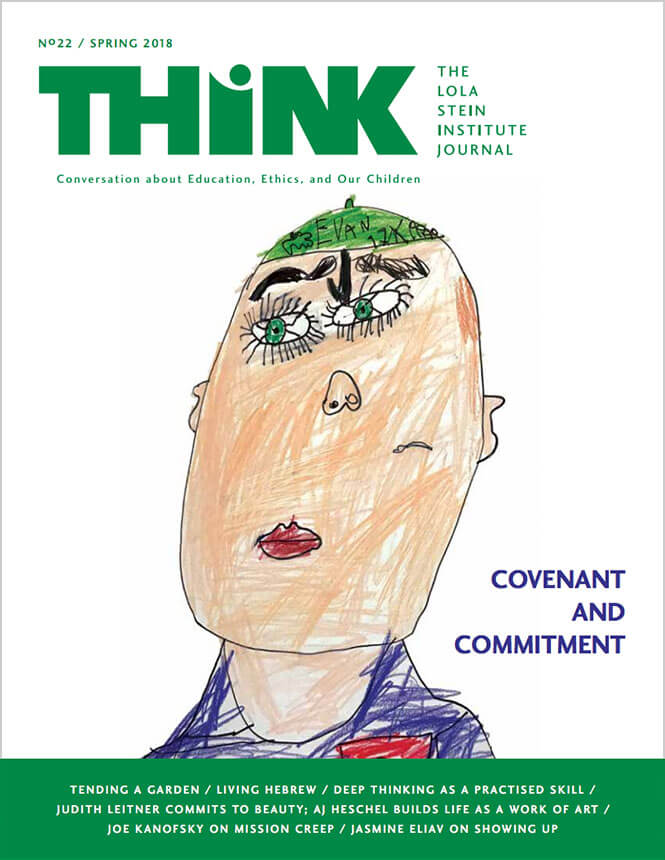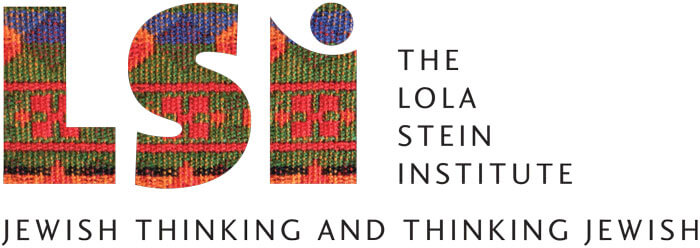- How We Teach

- First Column
- Second Column
- Third Column
- Case Studies

- First Column
- Second Column
- Culture & Community

- First Column
- Second Column
- News & Views

- Admissions

- First Column
- Second Column
- Support Us

- About

- First Column
- Second Column
- Parent Hub
- Attend an Open House
- Take a Tour
- Donate Now
- Calendar
- Blog
- 416-635-1876
- Search
The Choices We Make
Why I Sent My Kids to Heschel in 1997
Back in the 1990s, as a psychologist/neuroscientist who was doing research on learning and memory, I had pretty strong opinions about how human beings acquired information; the conventional manner in which information was being imparted to young school children was dead wrong. You can imagine my glee when my wife told me about a new Hebrew day school in Toronto that had opened and was based on principles that reflected my thinking. It offered multi-sensory learning, a low student-to-teacher ratio, and a reliance on active learning through experience. Lastly, there was to be an emphasis on “arts-based” learning (something unfortunately much misunderstood else where at the time).
I’ll get straight to reminiscencing. I recall my son’s first major assignment when he was in Grade 5; the class was studying an organ system in the human body. One group actually built an arm with elastics as muscles, incredibly creative but, more importantly, I’m firmly convinced that if I asked those students today how to distinguish an adductor from an abductor, they could do it. I loved the idea that they were learning through doing.
Once packing for a trip, I needed a siddur and grabbed one off the shelf at home. Opening it, I saw that it was my daughter’s Heschel siddur from years ago and completely marked up with notes, translations, and a section that said “My favourite prayer.” As I davened, seeing her handwritten notes from when she was little, brought tears to my eyes. I was thankful that my kids went to a school where Judaism was imparted in a non-mechanical way that engendered a love of Judaism.
An important aspect of the Heschel philosophy is the emphasis on learning through active discovery and experience. I fondly recall the students performing plays that they had written based on the last novel that they had studied in class. My son can still discuss that novel today in great detail. I can’t remember one book I read in Grade 5.
The feature of Heschel that touched me most was how individuality was celebrated. There were some very unique students with very special talents. At Heschel they were motivated to develop their talents and shine. This encouragement and acceptance was as much on the part of the students as the teachers. Those students would have languished elsewhere.
As long-term effects go, I have observed that my son’s professional development is imbued with a strong creative component. Education is more than acquiring information. The ability to use that information in creative new ways is the hallmark of a great education. I like to think that my son’s ability to infuse his professional endeavours with that strong creative element is thanks to Heschel.
Reflecting back on when I first heard news of this new school called Heschel. Initially I thought it sounded great in theory but short on proven success. With such lofty objectives, my question was whether the school could pull it off. We decided to roll the dice and give it a whirl. There were definitely bumps along the way. Did our gamble pay oft? My son, Mitchell, was in the school’s first graduating class, and his son, having started JK this past September, is the first son of a Heschel grad, a “grand-student.”
And Why I Chose It in 2017
I first walked in to The Toronto Heschel School when I was in Grade 4. My mom told me that I was going to visit a new school for the day to see if I might go there the next year. It was not easy at nine years old to face the prospect of leaving best friends and entering a new place with all new faces, but I decided to go along. Twenty years later, I can still remember the moment I walked into the classroom. Three of the boys immediately welcomed me in as if I had been going to school with them forever. They invited me to sit with them in class, play with them at recess, and eat lunch with them. On a day where any kid would rightfully expect to feel like a lonely newcomer, I felt the exact opposite. Based on that experience, I agreed to give Heschel a try. I had never met other kids who were so kind, guileless, and outward thinking, traits that the school instills in its students to this day.
Little did I know, the unique qualities of the student body weren’t the only reasons I would love Heschel. Over the course of my four years as a student there, I learned how to think outside the box, use my creativity to solve problems, and discover that learning is something we should love to do. From making pinhole cameras in art, to writing our own plays for school assemblies, to learning to play percussion instruments, Heschel taught me that the ability to think creatively is our most valuable asset, both in the classroom and in life. This would turn out to be the most powerful lesson I ever learned at school.
Today, as a parent of a JK student at Heschel, it warms my heart to see that the school has not only maintained these wonderful qualities but has also enhanced them. When my wife and I first went to visit the school, it was the students who offered to hold doors open for us. When I visited again to celebrate my cousin’s Bar Mitzvah during the school’s morning tefillah, I was blown away by the depth of what his friends and classmates said about him.
Then, another Heschel parent told us about a project her daughter was doing in class, and we were sold. Each student had taken a shoebox, put a picture of themselves on it, and filled it with depictions of all of the things important to them in life. The shoe box, she explained, represented the student as a person; the picture showed the physical self and the inside demonstrated the neshama, the soul. We could not believe that kids so young were doing a project so profound.
These experiences embody what makes Heschel unique and why we decided that it was the best school for our son. One semester into our experience as Heschel parents and we couldn’t be happier. Our son comes home every day excited about what he learned at school. He tells us about everything from outdoor exploration to the song he’s learning about Bereishit, and he’s even speaking Hebrew unprompted. We love the weekly emails from Morah Vivi and Morah Sari, and the opportunity to experience his learning along with him. Mostly, we’re thrilled that the Heschel philosophy is alive and strong, and that we are lucky enough to send our son to such a wonderful school. My hope is that, one day, my son will be as proud to be a Heschel graduate as I am.
Barry Bank received his PhD in Psychology and Neuroscience at the University of Toronto, worked as a Postdoctoral Fellow at the National Institutes of Health in Bethesda, MD, and is now with his family at Bank Bros. & Son Ltd. in Toronto.
Mitchell Bank is a graduate of The Toronto Heschel School, CHAT, and Dalhousie University. He is an entrepreneur and runs a leather goods company in Toronto where he lives with his wife and three sons.
PREVIOUS ARTICLE
Live and LearnSpecial Feature
Our Sages Tell Us
Perspectives
 The Lola Stein Institute (LSI) is a centre of inventive educational thinking and addresses the challenge to re-frame schooling for the exigencies of our times.
The Lola Stein Institute (LSI) is a centre of inventive educational thinking and addresses the challenge to re-frame schooling for the exigencies of our times.









